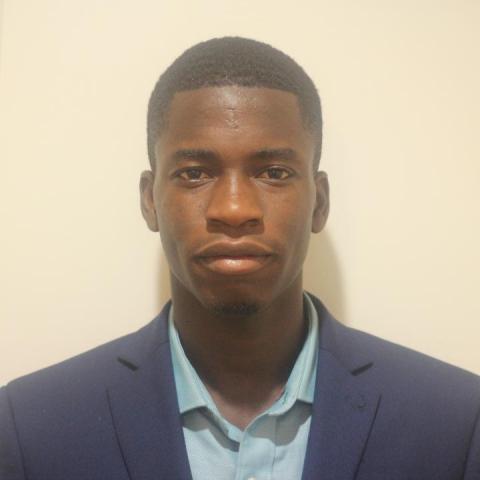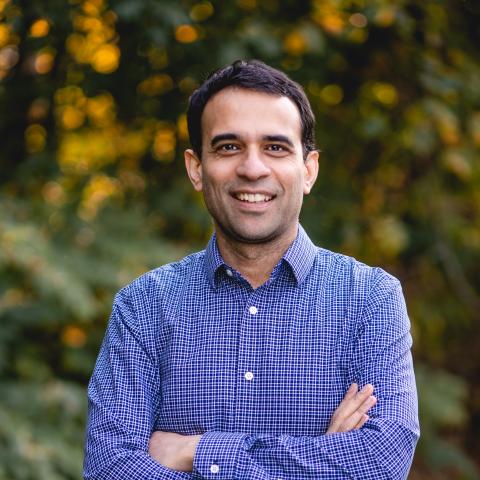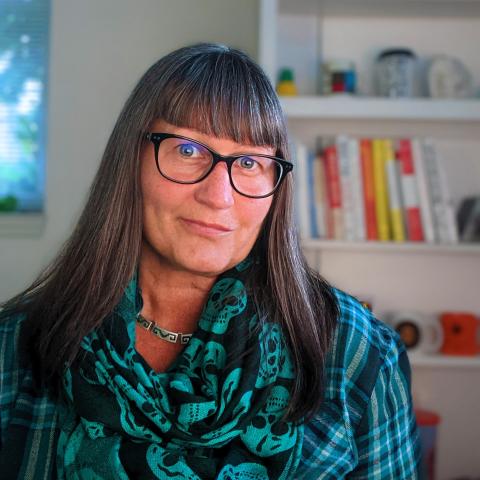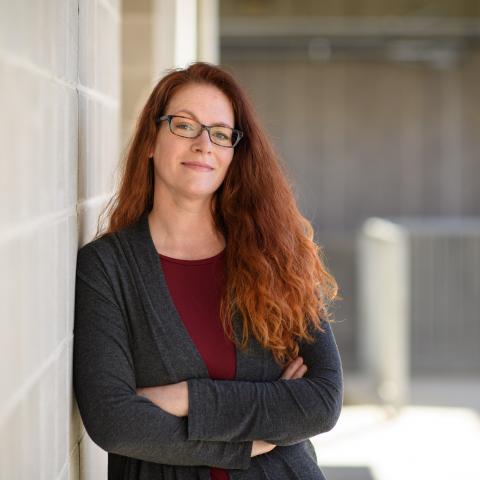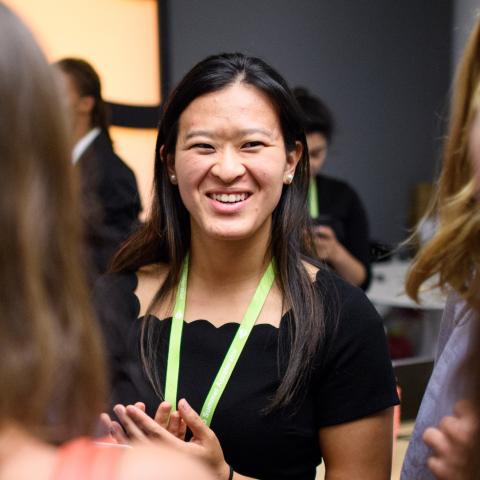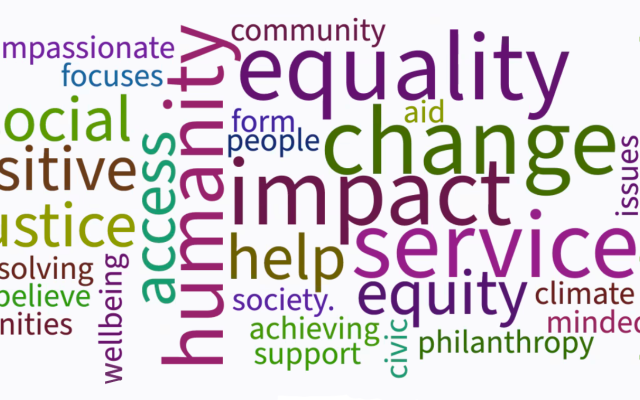
Entrepreneurship is often associated with capitalism, big tech, and success. Furthermore, social entrepreneurship tends to conjure thoughts of service, philanthropy, and societal impact but not necessarily opportunities for career building or financial prosperity.
At a recent Wintersession workshop, three Keller staff members set out to challenge students to reconsider their assumptions and expand their understanding of how they might make impact through innovative business solutions.
Carrie Collins, Business Operations Administrator, led the participants of Social Entrepreneurship: Using Your Skills in the Service of Humanity in a word cloud exercise that illustrated how the group of graduate and undergraduate students connected with the term social entrepreneurship.
Keller faculty member Manish Bhardwaj then set the session's tone with a short talk on the morality of entrepreneurship and innovation. He proposed that the participants reflect on not only what they can do but what we ought to do, and must do to impact others. Bhardwaj teaches this concept and the moral imperative of social justice through innovation in his course Entrepreneurship for the Idealist.
A panel of alumni entrepreneurs joined the group and shared insights, advice, and their own entrepreneurial stories, all of which began in Keller's eLab program. Each touched on common topics of motivation, life-work balance, burn-out, and self-doubt. All emphasized the importance of leadership coaching and engaged mentors, self-awareness, self-care, the power of staying open and flexible with your goals.
- Amina Yamusah '13, co-founder and CTO of Bloc software, is an Artificial Intelligence-powered learning management platform that equips workforce training organizations with innovative career tools and data insights to prepare talent for the future of work.
- Tobi Ayeni '21 *23, a current graduate student in Civil and Environmental Engineering, has used his passion for entrepreneurship to address environmental issues and social justice. He co-founded a startup that used novel tech solutions to repurpose wastewater to generate renewable energy. Ayeni also worked on designing achievement gap intervention techniques in high schools.
- Natalie Tung '18, co-founder and executive director of HomeWorks Trenton, a community-based, after-school boarding program that provides academic and social-emotional enrichment activities to supplement public schools, empower women, and build community leaders in Trenton, NJ.
Stephanie Landers, Entrepreneurial Program Manager and Manda Ryan, Program Coordinator for eLab and the Princeton Startup Immersion Program moderated the session. Both bring a wealth of experience in supporting student-founded business creation and have created a business incubator and accelerator program that encourages students to bridge the gap between social and commercial endeavors.
Landers' goal in hosting this workshop was to encourage the Princeton community to tap into their skills and talents to help humanity. The uptick in interest in societal impact projects throughout the Princeton community has been a source of encouragement for Landers.
"I hope to see more students in the eLab Accelerator program pursuing social ventures with the potential of making a great impact. I believe that one can indeed be a successful entrepreneur while doing good for the planet, for their country, for their community," said Landers.
Ryan works with both entrepreneurial-minded students and early-stage startup companies. As a result, she sees firsthand the value and potential of business creation with a purpose and the importance that our young entrepreneurs see the possibilities and opportunities taking a unique pathway to success can provide.
"Shared in this Wintersession workshop, and baked into all facets of the Keller Center, is the notion that we need more social entrepreneurs. Those individuals who are willing to take additional risks and potentially forgo profit multipliers for the sake of making a real positive change in community-based issues. We want students to understand that the knowledge, talents, and skills they acquire here at Princeton can bring great value to a social endeavor and personal fulfillment. In the nation's service and the service of humanity," said Ryan.
